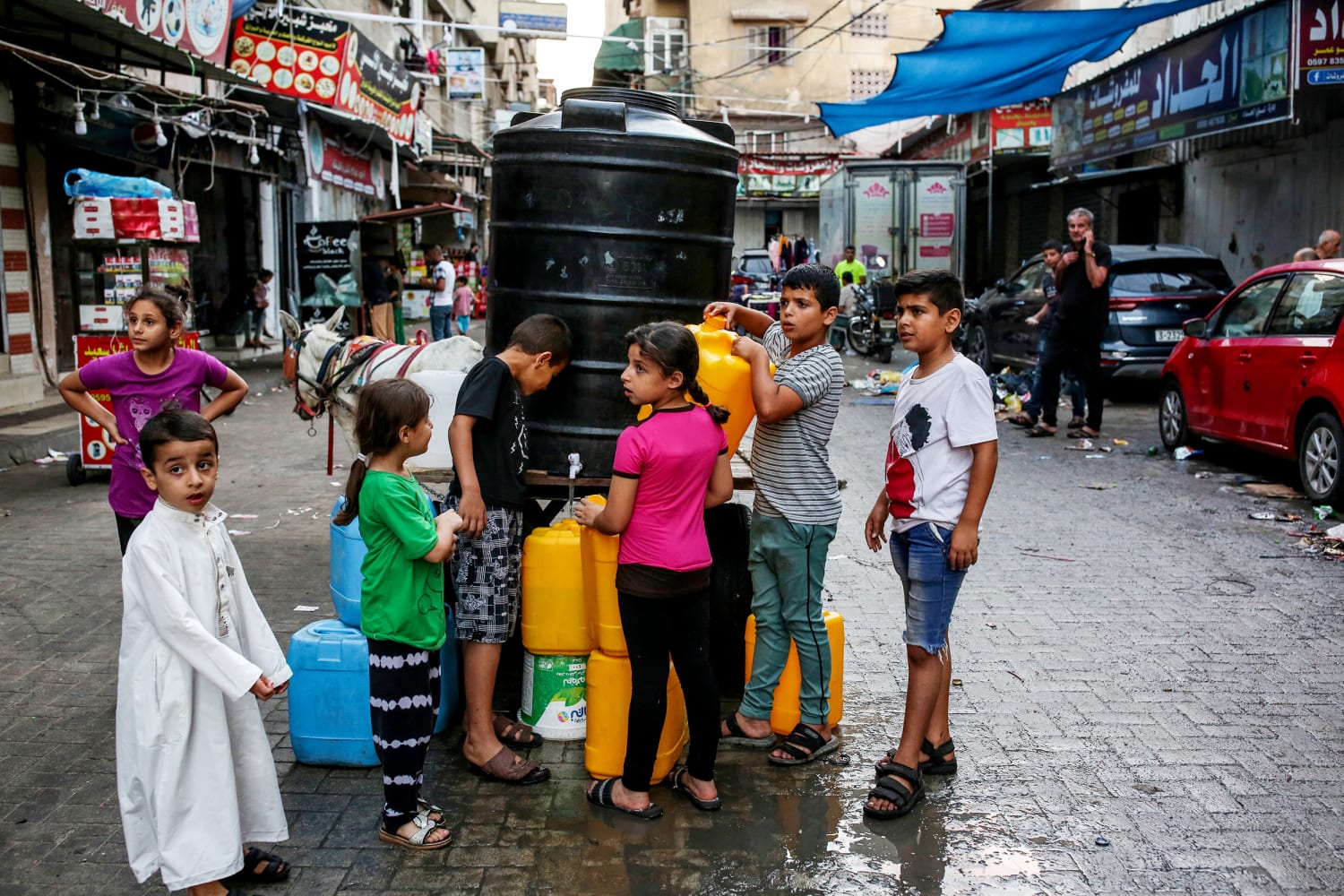The Gaza Strip is running out of clean drinking water, exacerbating an already catastrophic situation.
Following Hamas’ surprise terrorist attack on Israel on October 7, which killed more than 1,400 people, Israel cut off water, electricity and fuel to the Gaza Strip in retaliation.
“If we look at the problem of water – we all know that water is life – Gaza is running out of water and Gaza is running out of life,” Philippe Lazzarini, Commissioner General of the United Nations Palestine Relief and Works Agency. Refugees in the Middle East, said a statement released over the weekend.
Dr. Adam Levine, chief of global emergency medicine at the Alpert Medical School and Brown University School of Public Health, said: “We know that in other conflicts around the world, whether in Africa, the Middle East or South Asia, that infectious diseases actually kill more civilians than bombs or bullets.”
Infectious diseases are of particular concern to Gazans, “a population with limited access to clean water and sanitation,” Levin said, as well as “a population that has been displaced and is sheltering together in very crowded conditions.”
Without clean water, Gazans are forced to drink or cook with spoiled water.
This water is likely to be teeming with bacteria that can lead to severe intestinal diseases such as dysentery and cholera.
With cholera, “you can become dehydrated and die in an incredibly short period of time,” said Dr. Paul Spiegel, director of the Johns Hopkins Center for Humanitarian Health.
Doctors say children are most at risk because they have a much smaller blood volume than adults.
“In general, they dehydrate faster than adults,” Levine said.
An outbreak of cholera or other diarrheal diseases could have a particularly wide-ranging impact on Gaza’s population, nearly half of whom are aged 18 or younger, according to the UN.
“The younger the child, the more risk they are exposed to,” Levine said.
Flu and other viruses
There are also signs that other diseases, particularly respiratory viruses, are beginning to spread as thousands of evacuees from the northern Gaza Strip are forced to live in cramped and crowded areas in the southern half of the territory.
Dr. Ahmad Moghrabi, head of the department of plastic surgery at Nasser Hospital in the city Khan Younis in the southern Gaza Strip said he has seen what he believes is an increase in flu cases “even among medical personnel,” although tests are not available.
Spiegel noted that Covid is also expected to “raise its head” in the Gaza Strip. “As people move from north to south, there will be more and more overcrowding and more and more opportunities for infectious diseases,” he said.
As the conflict continues, widespread vaccination against influenza or other viruses such as RSV or Covid is out of the question. “It’s impossible,” Moghrabi said.
There is no evidence that measles is spreading, but the virus worries doctors. Measles is one of the most contagious viruses in the world. One case in a crowded shelter can infect anyone and everyone there who is not vaccinated.
While the measles vaccination rate among children in Gaza was 97% before 2020, it has dropped during the Covid pandemic, Levin said.
As a result, measles returned to Gaza in 2020 for the first time in decades.
“I wouldn’t be surprised if food comes back,” said Dabney Evans, assistant professor of global health at Emory University’s Rollins School of Public Health and director of the Emory Center for Humanitarian Emergencies. This has occurred “in other situations where there have been mass movements or movements of people.”
Measles vaccination, as well as vaccinations to protect against influenza, Covid and RSV, will be part of the humanitarian response if these workers and resources are allowed into Gaza. The World Health Organization said supplies sent to the region were on hold in Egypt at the Rafah crossing, which remained closed on Friday.
The lack of clean drinking water, food and sanitation among Gazans will exacerbate the health impacts of any spread of viruses or bacterial diseases, Evans said.
Dr. Barbara Zind, a Colorado pediatrician who arrived in Gaza City with the Palestinian Children’s Fund on the Friday before the war and is still there, estimated that 300 to 400 people are forced to share the same toilet.
“They don’t have fuel, electricity, food or clean water,” Zind said. “This population is being killed.”
Follow NBK HEALTH Hon Twitter & Facebook.

